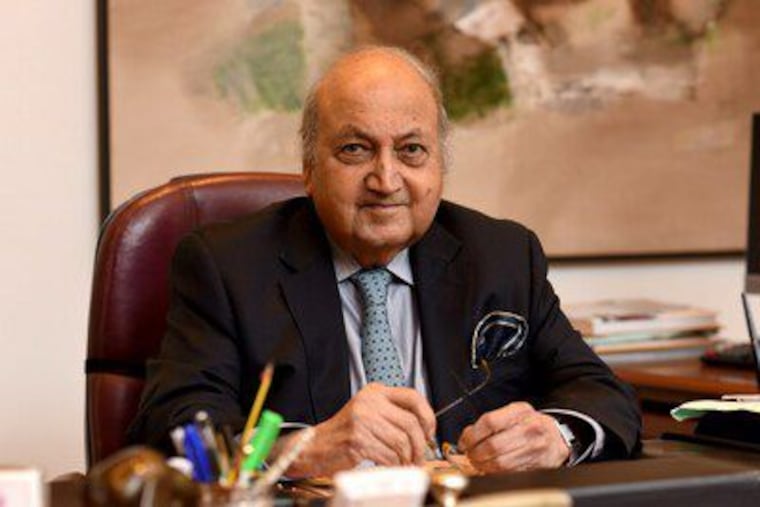Keshub Mahindra, Wharton grad and chairman of multinational Indian corporation, has died at 99
Born in the city of Simla in 1923, Mr. Mahindra came to Philadelphia for business school in the 1940s before returning to his native country to work at Mahindra & Mahindra.

Keshub Mahindra, 99, formerly of Philadelphia, a graduate of the Wharton School at the University of Pennsylvania who went on to become one of India’s most prominent business tycoons, died Wednesday, April 12, at his home in Mumbai. The cause of death was not made public.
Born in the city of Simla in 1923, Mr. Mahindra came to Philadelphia for business school in the 1940s before returning to his native country to work at Mahindra & Mahindra, an automotive manufacturing company founded by his industrialist father and uncle.
Mr. Mahindra became the chairman of the company in 1963, and during his five-decade tenure oversaw its meteoric expansion from a military Jeep assembler to a multinational conglomerate with subsidiaries in the technology, farm supply, and hospitality sectors. The Mahindra Group now ranks among India’s largest corporations.
Prior to his death, just six months shy of this 100th birthday, Mr. Mahindra held the title not only of India’s senior-most Wharton alumnus, but also the republic’s “oldest billionaire,” amassing a net worth of $1.2 billion, according to Forbes.
The titan’s illustrious career did not come without a dark chapter.
In 1984, Mr. Mahindra was serving as nonexecutive chairman of Union Carbide India Ltd. when a chemical leak took place at a company plant in Bhopal. The Bhopal gas tragedy killed at least 3,700 and injured more than half a million people, becoming one of the worst industrial disasters in history and an eventual synonym for corporate irresponsibility. Mr. Mahindra and others were sentenced to two years in prison in 2010 for their roles, but ultimately did not serve prison time.
He retired from the Mahindra Group in 2012, passing the company’s reins to his nephew. Years into his retirement, Mr. Mahindra said the Bhopal incident had remained “regretful, remorseful, and painful” throughout his life.
In a statement after his death, the Mahindra Group called its late chairman “an exemplary statesman and an irreplaceable figure in Indian industry,” respected among peers for his business acumen. He served on boards of other prominent companies as well as on government commissions.
Business associates remembered Mr. Mahindra as a philanthropist, mentor, and humble leader who always referred to his employees as “colleagues.”
During his time in Philadelphia, Mr. Mahindra stood out as a player on Penn’s tennis team, his dominant matches often making the sports pages of The Inquirer. According to his friends, business associates, and Mr. Mahindra himself, he was also an avid golfer and a voracious reader of history, who reportedly consumed three to four books at a time.
In an interview with Wharton’s alumni magazine in 2019, Mr. Mahindra ruminated about humanity, income inequality, and the role of philanthropy.
“I tell my children and young people two things: one, dream about achieving the impossible — because impossible things do happen,” he said. “Two, be compassionate. Think about others. Money is not everything.”
According to India’s English-language newspaper The Hindu, Mr. Mahindra is survived by his wife, Sudha; their three daughters, Uma, Leena, and Yutchika; six grandchildren and three great-grandchildren.
It was not clear when funeral services were held.